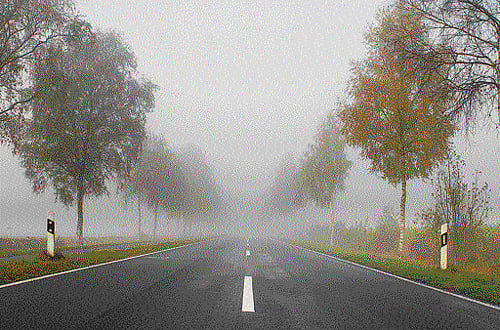‘Noontide Toll’ by Romesh Gunesekera takes us through Sri Lanka, where wounds of the civil war are fast fading but scars etched in memory are failing to heal, writes Chethana Dinesh.
Wars leave indelible scars on a nation’s psyche. Scars that may or may not fade. Scars that alter a nation’s course in history... Sri Lanka, as a nation, is dealing with such deadly scars. After nearly three decades of conflict, the civil war is over and the country is tottering into the future. With the baggage of its troubled past, life is not easy. Romesh Gunesekera’s Noontide Toll captures precisely this — life in the aftermath of a civil war. And poignantly so.
A collection of stories strung together as vignettes of Sri Lanka’s present, suggestive of the past, the book begins as the narration of Vasantha, a van driver. The same Vasantha, who retired from the state corporation early, bought himself a van, and now drives people around the island. He takes the reader from the army camps of the north to the moonlit beaches of the south, across streets and villages of Sri Lanka that’s grappling with the sense of loss — of losing one’s heritage, culture and, most of all, its people and their trust in each other. The journey that begins thus offers the reader a peek into the lives of Vasantha’s passengers, who range from Chinese businessmen looking to cash in on the remains of the bloody war to a father-son duo coming back to the island nation to pick up the pieces.
As the stories unfold, Noontide... introduces us to some uncomfortable truths about Sri Lanka’s past. How about Vasantha’s experience of driving Father Perera and his friend from England, Patrick, to meet a Major, to begin with? Yes, what seems as a simple meeting with an Army Major turns out to be a headhunt for a soldier for brutal war crimes in the story titled ‘Mess’. Or, the mystery surrounding Miss Saraswati in ‘Roadkill’? The pretty lady who manages the Spice Garden Inn at Kilinochchi, the epicentre of the civil war, seems to have had a terrible past rooted in the civil war — after all, the thick scar on her neck suggests it. But, she seems to prefer to remain silent about it. “After a war, it is best not to ask about the past,” she says, voicing the thoughts of many of her compatriots. However, Vasantha disagrees with her.
According to him, knowledge of the past helps to avoid repeating mistakes.As we turn the pages, heartrending stories start tumbling out, and skeletons in the cupboards too, piquing our interest. A young Sihalese soldier longs for his Tamil lady love whose brother, a LTTE cadre, gets killed by him; a doctor who had fled the country during the war comes visiting his homeland with his son to look for his past, but is not sure whether he should come back home for good; the many junkyards across the nation serving as graveyards for the LTTE-confiscated and abandoned bicycles, buses, lorries and vans, are silent reminders of the gory past; the irony of Czechs seeking refuge in Sri Lanka as an escape from their own problems...
Each story, a recollection and reflection of Sri Lanka, is a journey from the gruesome past, seen through Vasantha’s eyes. However, they all intersect with each other in their eagerness to understand life in the island nation, as it is today. It is a country bursting with hope — hope of a better future, better life, better prospects. Natives want to leave the past behind and march towards the future. But, one wonders if the past can be left behind at all. Vasantha, on his part, embodies this dilemma faced by most Sri Lankans. His profession, driving, is employed by the author to explain the predicament of Sri Lanka — a nation that has to move forward, but with a watchful eye on its past.
The book has a distinct Sri Lankan flavour to it, a sense of calmness that is waiting to burst out of the pages. Not to forget the sweet sound of waves that seems to be playing out in the background, constantly. The narrative begins slowly, but quickly picks up steam, enticing the reader to thumb through the pages at a frenetic pace. Proof enough of the author’s flair for writing. His careful choice of words makes almost every sentence pregnant with meaning. For instance, “In this world, we must be the lucky ones if we survive from one day to the next”, “There comes a point when you don’t want to know”, “So the look is all make-believe — an art we seem to excel at in this country, north and south”, “What was left was rubble, and what had healed was scarred”... Steering clear of verbal wizardry, they convey the sentiment of a people caught between a disturbing past and a present that promises dramatic possibilities.
Along with simplicity of language, captivating characterisation further adds to the allure of the book. The prose reveals, on the one hand, a curious, observant mind and a subtle sense of humour, and on the other, hope, that forms the leitmotif around which the myriad stories in this book are woven. In short, it’s a book you wouldn’t mind reading, over and over again, for its realistic feel.

